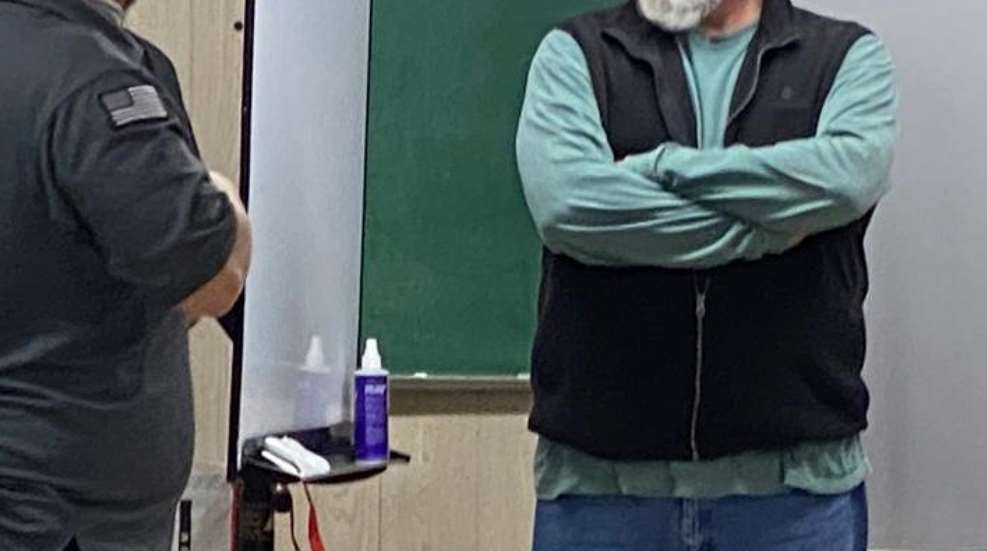Firearm Trainers: How to Deal with “Problem” Students (and How Not to be One)

Firearm Trainers: How to Deal with “Problem” Students (and How Not to be One) – NRA Women.com
Everyone taking your class is entitled to proper training. Here are some suggestions to make sure other students don’t interfere with that goal.
Firearm training classes are filled with students from all walks of life. More often than not, they arrive to class with an attitude of excitement and anticipation, ready to learn. Every so often, however, a student brings a poor attitude, a big ego or another trait that has the potential to disrupt the rest of the class and their ability to concentrate. These situations require early intervention by the instructor so that this “problem” student doesn’t rob the rest of the students of their proper training.
If you are an instructor, it’s best to identify these students ahead of time, be proactive and head off any problems before they happen. If possible, listen for clues so you can communicate with the student or students prior to the class. A good instructor can usually convert a potential negative experience into a positive one.
Based on my experience, I have identified five types of behavior that have the potential to become classroom disruptions, and how to deal with each one.
The “Know-It-All”
The “know-it-alls” are usually taking an NRA Basic and NRA Instructor Course because they want to conduct their own firearm training classes. They often believe they cannot learn anything from an NRA course, but just need the credentialing for attracting students. They let everyone know about their expertise in firearms, and are quick to offer unsolicited help to others in the class.
It is easy to deal with the “know-it-alls” during class. Acknowledge their expertise and enlist their help with demonstrations. If they are following the NRA methods and techniques, welcome their assistance. Chances are, they won’t know how to properly conduct all NRA methods and techniques, but you can redirect them to the curriculum and objectives followed in NRA courses. This way the “know-it-alls” can learn the proper fundamentals while maintaining their ego and pride.
The “I Do Not Really Need This Class”
This “I do not really need this class” student is usually found taking the NRA Basic Pistol Course and the NRA Instructor Pistol Course. The reason he or she is taking these courses is because he or she needs to have the NRA Certifications for another goal, which usually is to become a Concealed Carry or License to Carry Instructor in their state of residence. Many states require one of the credentials to be an NRA Pistol Instructor.
This type of student will boldly advertise to the class know that he or she does not need this course. He or she will inform everyone how long they have been shooting and if they belong to any competitive shooting organization. Like the “know-it-all,” your best bet is to quickly try to include them in the discussion while maintaining control of the class. Also, as with the “know-it-all,” try not to offend egos. As the class progresses, these students will soon find out they do not know the “NRA way” of teaching … yet.
The “Storyteller”
The “storyteller” is a time burglar! This student is someone who feels invested in the class and is enjoying the atmosphere. They feel connected to everyone else in the class and are comfortable in reporting personal stories relating to the topic at hand. This student is unintentionally dragging out the class and interrupting the learning process for the other students. The “storyteller” is not being malicious, it is just his or her personality.
The best way of dealing with the “storyteller” is to head off his or her stories. When this individual is telling a story, quickly find a point where you can jump in and direct it back to the lesson. Sometimes, other students will approach you during the break and quietly complain. You may even have to gently ask the “storyteller” to keep his or her stories to a minimum and shortened. This student normally complies with your request without getting his or her feelings hurt.
The “Hijacker”
The “hijacker” wants to take over the class. This type of student likes to add information on everything that you say. Everything! For example, if you demonstrate how to remove a bolt out of a modern sporting arm, the “hijacker” wants to show how to break the bolt down into individual parts. These students are usually offering up too much information for the class you are teaching. If you are teaching a basic class, the “hijacker” can easily confuse the other students in the class. This is because most of the information being offered up is over everyone else’s head.
The “hijacker” is easy to deal with when maintaining a pleasant classroom atmosphere. When they start to offer too much information, smile big and say, that is great, but this is a basic course while holding up the NRA Basic book. This redirects everyone and reemphasizes that this is a basic course. Usually, after a couple of times of redirecting the “hijacker” they get the message and refrain from additional advanced knowledge. It usually does not insult them, and they remain active in discussions.
The “Helicopter Spouse”
The “helicopter spouse” can be a challenge. The reason they are taking your class is because they are having a difficult time learning from the other. Usually, it is a wife that was being taught by the husband. Most instructors will tell you that it usually does not end well when a husband or wife tries to teach the other. The “helicopter spouse” will take the class with their significant other to make sure that you are teaching the right things.
The “helicopter spouse” will let the other know when he or she agrees with you, or when they do not. The dominant one will let you know what the other is doing wrong, instead of letting you do your job. Often, they will butt in at the range and contradict what you are instructing.
I will politely remind the dominant spouse the reason they came to me to begin with is because his or her method was not working. The trick is to separate the pair so you can instruct. Give the dominant spouse something to do. Appoint them the Range Safety Officer so they have others to watch over. Have them watch all firearms and making sure they are always pointed downrange and in a safe direction. When the student starts shooting with the proper shooting fundamentals and hitting where they are aiming, let the dominant spouse know that the method you taught seems to work better for him or her. This way you are not hurting their feelings and the dominant spouse can save face.
If you are an NRA Instructor, these types of students come with the territory. I am not insulted by these individuals but take them as a challenge. Instead of trying to prove to these students that they are wrong, I want to win them over. If I take them on as an adversary, several things can happen. First, the student will shut down and will not learn anything. Second, it could affect the entire class in a negative way. Lastly, you as an instructor, will get a bad name for yourself.
Sometimes you must resort to counseling a student if he or she is becoming a distraction. Do so in private, yet in plain view, and act professionally explaining that they are becoming a distraction and what behavior you expect. In an extreme case, you may have to ask them to leave the class. With proper documentation, the NRA will back you up.
Handling problem students takes a certain amount of skill. I have been a firearms instructor for more than 25 years, and I have encountered all these types of students multiple times a year. I am proud to say I have never had a student leave one of my classes feeling that they did not learn something or that it was a waste of time and money. In fact, the students that seemed that they would be the biggest problem approached me at the end of the class and told me how much they learned. I even had students tell me that by taking an NRA Firearm class, they realized how much they did not know about the subject.
Remember, as an NRA Instructor you are the Gold Standard when it comes to Firearms Training. Everyone taking your class is entitled to proper training.
